Dubai, a worldwide economic hub, serves as a beacon for entrepreneurs looking for possibilities in the import export sector. The import export business in Dubai is a dynamic journey filled with opportunities, challenges, and the promise of global connectivity. Dubai is a global trading hub thanks to its strategic position, cutting-edge infrastructure, and business-friendly atmosphere. In this detailed book, we will dig into the complexities of the import-export company in Dubai, discussing the processes, problems, and several possibilities that await those who enter this competitive sector.
Thank you for reading this post, don't forget to subscribe!
Understanding Dubai’s import and export scenario.
Dubai’s import and export scenario is a dynamic and integral part of its thriving economy. The strategic location, state-of-the-art infrastructure, and business-friendly environment make Dubai a global hub for trade. Understanding the import and export landscape in Dubai involves exploring key sectors, regulatory frameworks, challenges, and opportunities that shape the city’s role in international commerce.
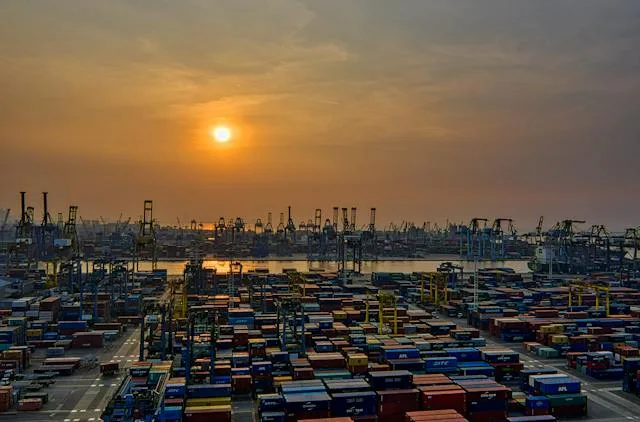
Key Sectors Driving Imports and Exports:
- Oil and Gas:
- Dubai, though not as oil-dependent as some of its neighboring emirates, remains a significant player in the oil and gas sector. Crude oil and refined petroleum products contribute significantly to the city’s exports.
- Electronics and Technology:
- Dubai imports and exports a wide range of electronic goods and technology products. The city serves as a distribution center for cutting-edge gadgets, consumer electronics, and IT equipment.
- Textiles and Apparel:
- The textile and apparel industry plays a vital role in Dubai’s import-export business. The city imports raw materials for its textile sector and exports finished garments to various markets.
- Precious Metals and Stones:
- Dubai is a major hub for the trade of precious metals and stones. The city’s Gold Souk is renowned globally, attracting buyers and sellers in the precious metals market.
- Re-Exports:
- Dubai’s re-export business is a key driver of its economy. Goods imported into Dubai are often re-exported to neighboring countries, taking advantage of the city’s strategic location.
Regulatory Framework and Documentation:
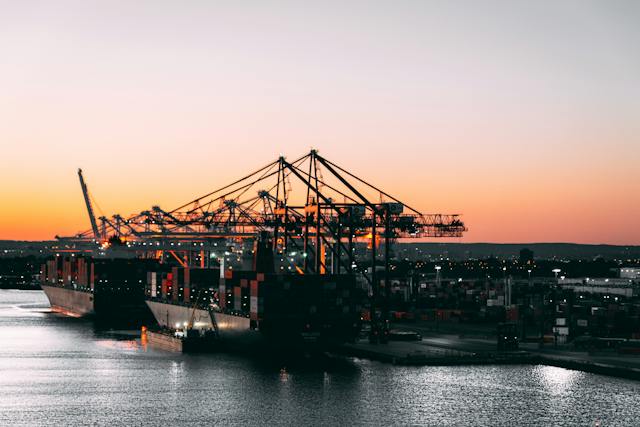
- Customs Procedures:
- Dubai Customs plays a crucial role in regulating imports and exports. Strict adherence to customs procedures, including accurate documentation and payment of duties, is essential for smooth trade operations.
- Free Trade Zones:
- Dubai’s numerous free trade zones offer businesses attractive incentives, including tax exemptions and simplified import-export procedures. Companies operating within these zones benefit from reduced bureaucratic hurdles.
- Export Financing and Insurance:
- Exporters in Dubai often utilize various financing options to support their international transactions. Export credit agencies and financial institutions provide services to mitigate financial risks, and export insurance helps safeguard against unforeseen challenges.
Challenges in Dubai’s Import-Export Business:
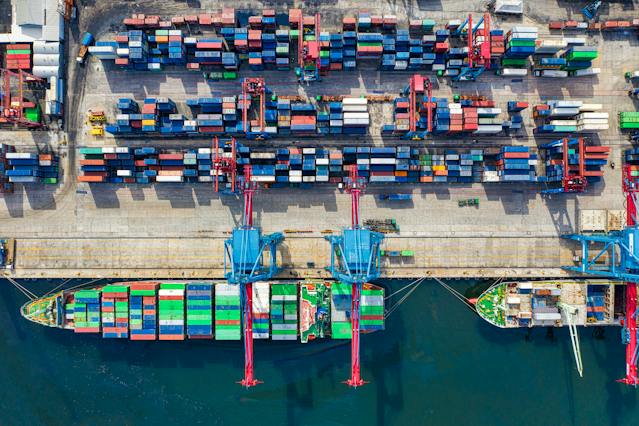
- Currency Fluctuations:
- Like any global trading hub, Dubai is susceptible to currency fluctuations. Importers and exporters must carefully manage currency risks to protect their profit margins.
- Logistical Complexities:
- Efficient logistics are critical for the import-export business. Navigating the complexities of transportation, warehousing, and distribution is essential for timely and cost-effective trade.
- Global Economic Shifts:
- Dubai’s import-export scenario is influenced by global economic shifts. Economic downturns or geopolitical events can impact trade volumes and patterns.
Opportunities for Growth:
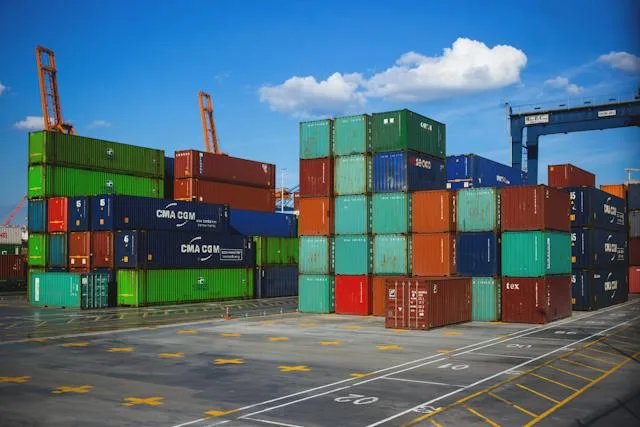
- E-commerce Integration:
- The integration of e-commerce platforms and digital trade solutions presents significant growth opportunities. Dubai continues to invest in digital infrastructure to facilitate cross-border transactions.
- Diversification of Trade Partnerships:
- Exploring and diversifying trade partnerships is key for sustained growth. By engaging with emerging markets and strengthening ties with established trading partners, Dubai can enhance its position in the global trade network.
- Sustainable Practices:
- The growing emphasis on sustainable and ethical trade practices provides an avenue for businesses to differentiate themselves. Dubai can capitalize on this trend to attract environmentally conscious consumers and businesses.
Future Trends:
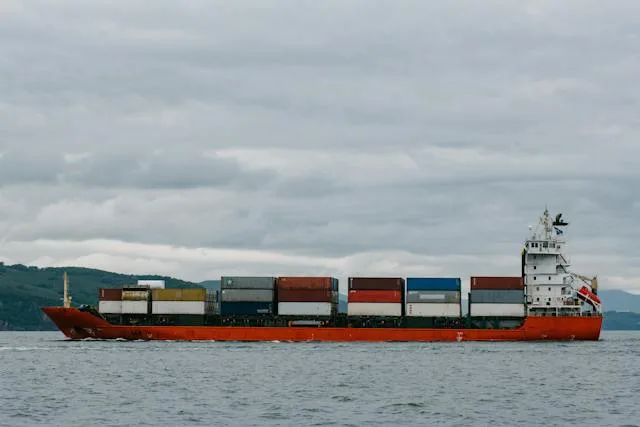
- Digital Transformation:
- The ongoing digital transformation is expected to streamline trade processes further. Blockchain technology, artificial intelligence, and other innovations will enhance transparency and efficiency in Dubai’s import-export landscape.
- Green Trade Practices:
- The global shift towards sustainability is likely to influence trade practices. Dubai can position itself as a hub for eco-friendly products and sustainable trade practices.
- Innovation in Supply Chain Management:
- Innovations in supply chain management, including real-time tracking and data analytics, will play a crucial role in the future of Dubai’s import-export business. Efficient supply chains contribute to cost savings and improved customer satisfaction.
Dubai’s import and export scenario is characterized by diversity, innovation, and resilience. As a global trading hub, the city continues to evolve, adapting to changing economic landscapes and embracing technological advancements. Entrepreneurs and businesses engaging in the import-export business in Dubai must stay agile, leveraging opportunities and addressing challenges to thrive in this dynamic and competitive marketplace.
Exploring trade prospects
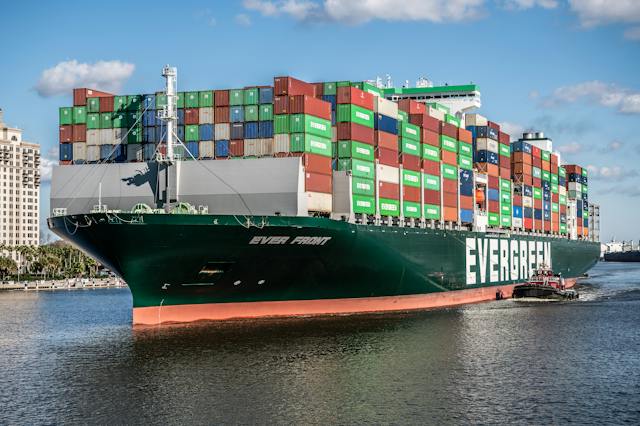
Exploring trade prospects is a strategic endeavor for businesses and entrepreneurs seeking to expand their reach, tap into new markets, and capitalize on global opportunities. Whether you are considering international trade for the first time or looking to diversify your existing business, a comprehensive exploration of trade prospects involves understanding market dynamics, assessing risks and challenges, and developing a strategic plan for sustainable growth.
1. Market Research and Analysis:
- Identify Target Markets: Conduct thorough market research to identify potential target markets. Consider factors such as consumer demand, economic stability, and regulatory environments.
- Evaluate Market Size and Growth Potential: Assess the size of the target market and its growth potential. Analyze trends, demographic data, and economic indicators to understand the market dynamics.
- Competitor Analysis: Understand the competitive landscape in the target market. Identify key competitors, their strengths, weaknesses, and market positioning. This analysis informs your strategy and helps identify areas for differentiation.
2. Regulatory and Legal Considerations:
- Understand Trade Regulations: Familiarize yourself with the trade regulations and legal requirements in the target market. This includes customs procedures, import/export restrictions, and compliance with international trade laws.
- Intellectual Property Protection: Ensure that your intellectual property rights are protected in the target market. This may involve obtaining patents, trademarks, or copyrights and understanding the legal framework for intellectual property protection.
3. Financial Planning and Risk Management:
- Assess Financial Viability: Conduct a thorough financial assessment to determine the viability of entering a new market. Consider the initial investment, operating costs, and potential return on investment.
- Currency Risks and Hedging Strategies: Evaluate currency risks associated with international trade. Implement hedging strategies to mitigate the impact of currency fluctuations on your business finances.
- Explore Financing Options: Explore financing options available for international trade. This may include export credit agencies, trade finance solutions, and partnerships with financial institutions.
4. Logistics and Supply Chain Management:

- Optimize Supply Chain: Develop a robust supply chain strategy to ensure timely and cost-effective delivery of goods. Consider logistics, transportation, and warehousing options to optimize the supply chain.
- Risk Mitigation in Logistics: Identify potential risks in logistics and develop contingency plans. This may involve diversifying suppliers, securing alternative transportation routes, and implementing effective inventory management.
5. Cultural and Marketing Strategies:
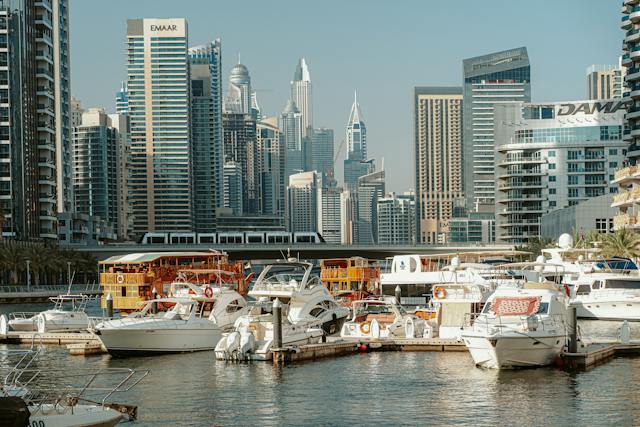
- Cultural Sensitivity: Understand the cultural nuances of the target market. Tailor your marketing and communication strategies to resonate with local cultural preferences and norms.
- Localization of Marketing Materials: Localize marketing materials, including product labels, advertising campaigns, and promotional materials. This enhances your brand’s appeal and relatability to the target audience.
6. Technology and E-commerce Integration:

- Leverage E-commerce Platforms: Explore the potential of e-commerce platforms for reaching a global audience. Develop an online presence to facilitate international transactions and connect with customers worldwide.
- Implement Technology Solutions: Integrate technology solutions to streamline operations. This may include the use of digital platforms for order processing, inventory management, and real-time tracking.
7. Sustainability and Corporate Social Responsibility (CSR):
- Embrace Sustainable Practices: Consider integrating sustainable practices into your business operations. This not only aligns with global trends but also enhances your brand reputation.
- CSR Initiatives: Explore opportunities for corporate social responsibility (CSR) initiatives in the target market. Engaging in socially responsible activities can positively impact your brand image.
8. Establishing Partnerships and Networks:
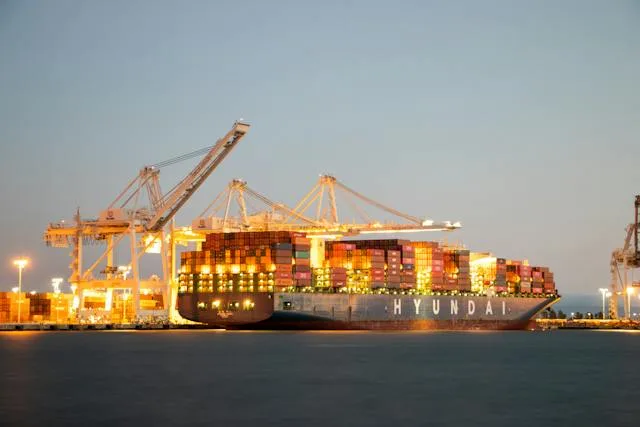
- Network with Local Businesses: Establish partnerships and collaborations with local businesses in the target market. This can provide valuable insights, access to distribution channels, and a stronger foothold in the local business community.
- Engage with Trade Associations: Join trade associations and business networks relevant to your industry. Participation in industry events and networking opportunities can open doors to potential partners and customers.
9. Adaptable and Responsive Approach:
- Monitor Market Trends: Stay informed about market trends, changes in consumer behavior, and emerging technologies. A proactive approach to adapting to market dynamics is crucial for sustained success.
- Flexibility in Strategy: Be flexible in your approach and be ready to adjust your strategies based on evolving market conditions. The ability to adapt quickly to changing circumstances is a key trait of successful global businesses.
10. Evaluate and Iterate:
- Continuous Evaluation: Regularly evaluate the performance of your trade activities in the new market. Gather feedback, assess key performance indicators, and make data-driven decisions to refine your strategies.
- Iterative Improvement: Implement iterative improvements based on lessons learned. The international trade landscape is dynamic, and continuous improvement is essential for long-term success.
Exploring trade prospects is a multifaceted endeavor that requires careful planning, market intelligence, and a commitment to ongoing improvement. By conducting thorough research, understanding regulatory requirements, and adapting to cultural nuances, businesses can position themselves for success in the global marketplace.
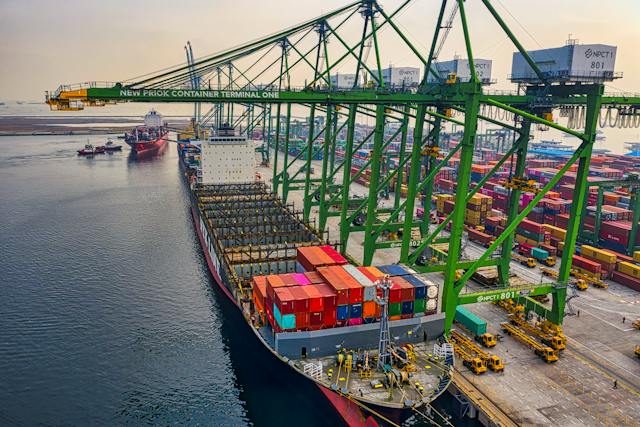
- The Thriving Landscape of Import-Export Business in Dubai:Dubai’s strategic geographical location has made it a focal point for global trade. The import-export business in Dubai thrives on the city’s connectivity, acting as a conduit for goods flowing between the East and the West.
- Key Sectors Driving Imports and Exports:
Navigating the Import Process in Dubai:
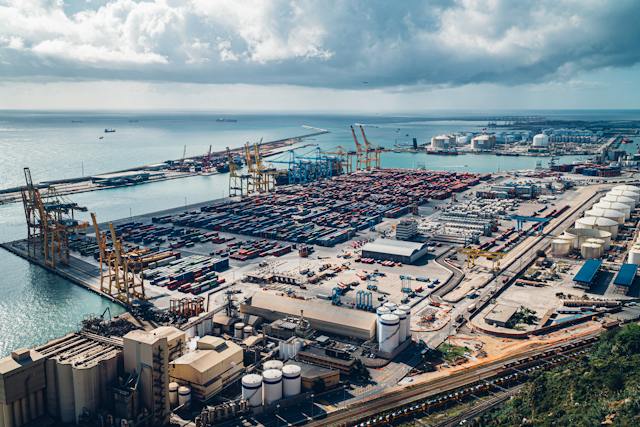
- Import Regulations and Documentation:Successful engagement in the import-export business in Dubai begins with a comprehensive understanding of import regulations and documentation. Navigating customs procedures, obtaining necessary permits, and complying with regulations are crucial steps in the import process.
- Customs Duties and Tariffs:
- Choosing the Right Import Channels:
Export Dynamics: Unlocking Global Markets from Dubai:
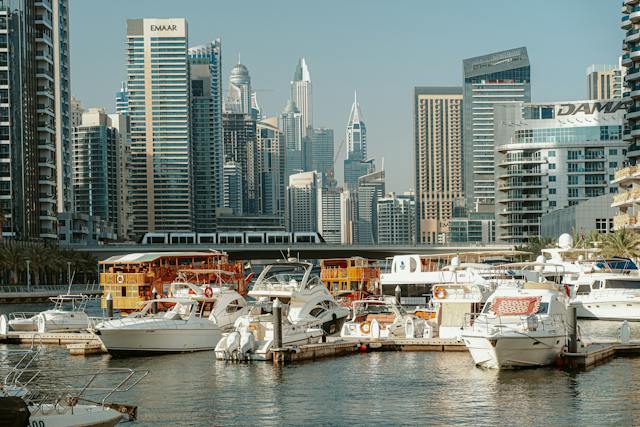
- Export Documentation and Compliance: Exporting from Dubai requires adherence to documentation and compliance standards. Entrepreneurs must prepare export documentation accurately, ensuring compliance with international regulations. This meticulous approach paves the way for seamless global transactions.
- Export Financing and Insurance:
- Leveraging Free Trade Zones:
Challenges and Solutions in Import-Export Business in Dubai:
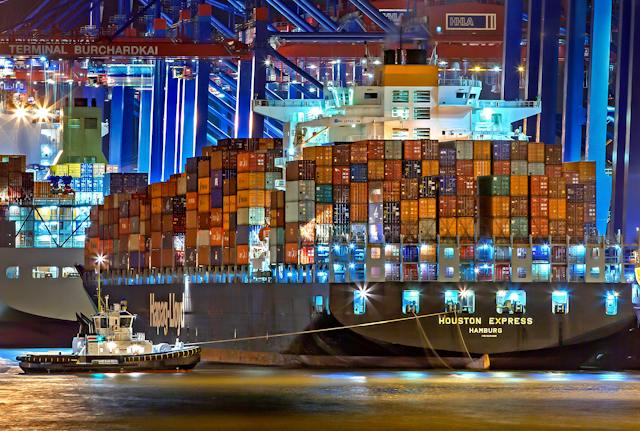
- Currency Exchange and Financial Risks: Currency exchange fluctuations pose challenges in international trade. Entrepreneurs engaged in the import export business in Dubai must employ risk mitigation strategies, such as forward contracts, to manage financial risks.
- Navigating Regulatory Changes:
- Logistical Complexities:
Strategies for Success in Dubai’s Import-Export Business:
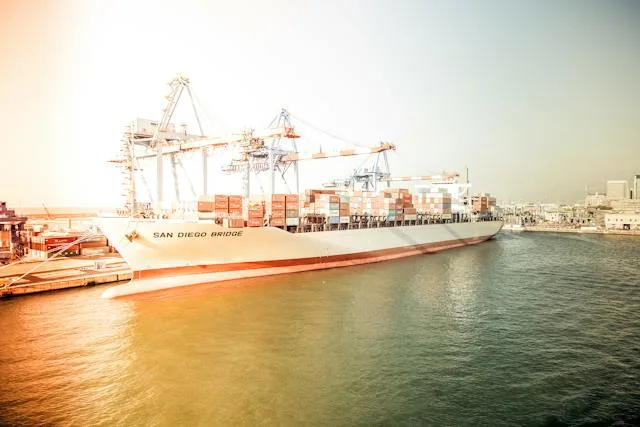
- Market Research and Identification of Niches:Thorough market research is foundational for success in the import-export business. Identifying market niches, understanding consumer preferences, and assessing demand trends contribute to informed business decisions.
- Building Strong Partnerships:
- Technological Integration:
Future Trends and Innovations in Dubai’s Import-Export Landscape:

- E-commerce and Digital Trade Platforms:The future of the import-export business in Dubai is intertwined with the rise of e-commerce and digital trade platforms. Entrepreneurs having freelance visa can embrace these trends can tap into a broader consumer base and expedite cross-border transactions.
- Sustainable and Ethical Trade Practices:
Conclusion: Navigating the Seas of Import-Export Business in Dubai
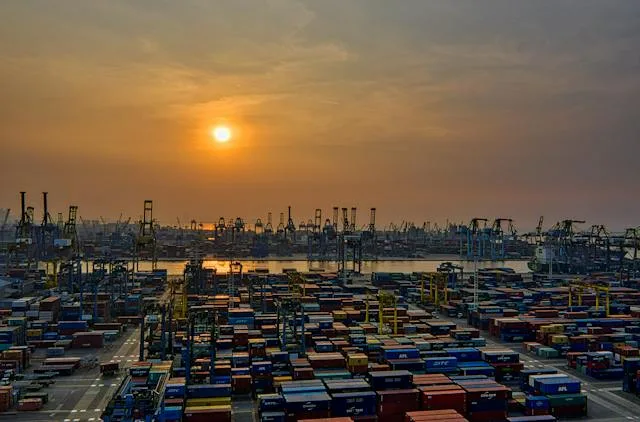
In conclusion, the import-export business in Dubai is a dynamic journey filled with opportunities, challenges, and the promise of global connectivity. Entrepreneurs venturing into this landscape must equip themselves with knowledge, adaptability, and a strategic vision. Dubai’s position as a global trading hub ensures that those engaged in the import-export business have access to a diverse and vibrant marketplace. As the city continues to evolve, the import-export landscape in Dubai will remain a beacon for those seeking to unlock the vast potential of international trade.